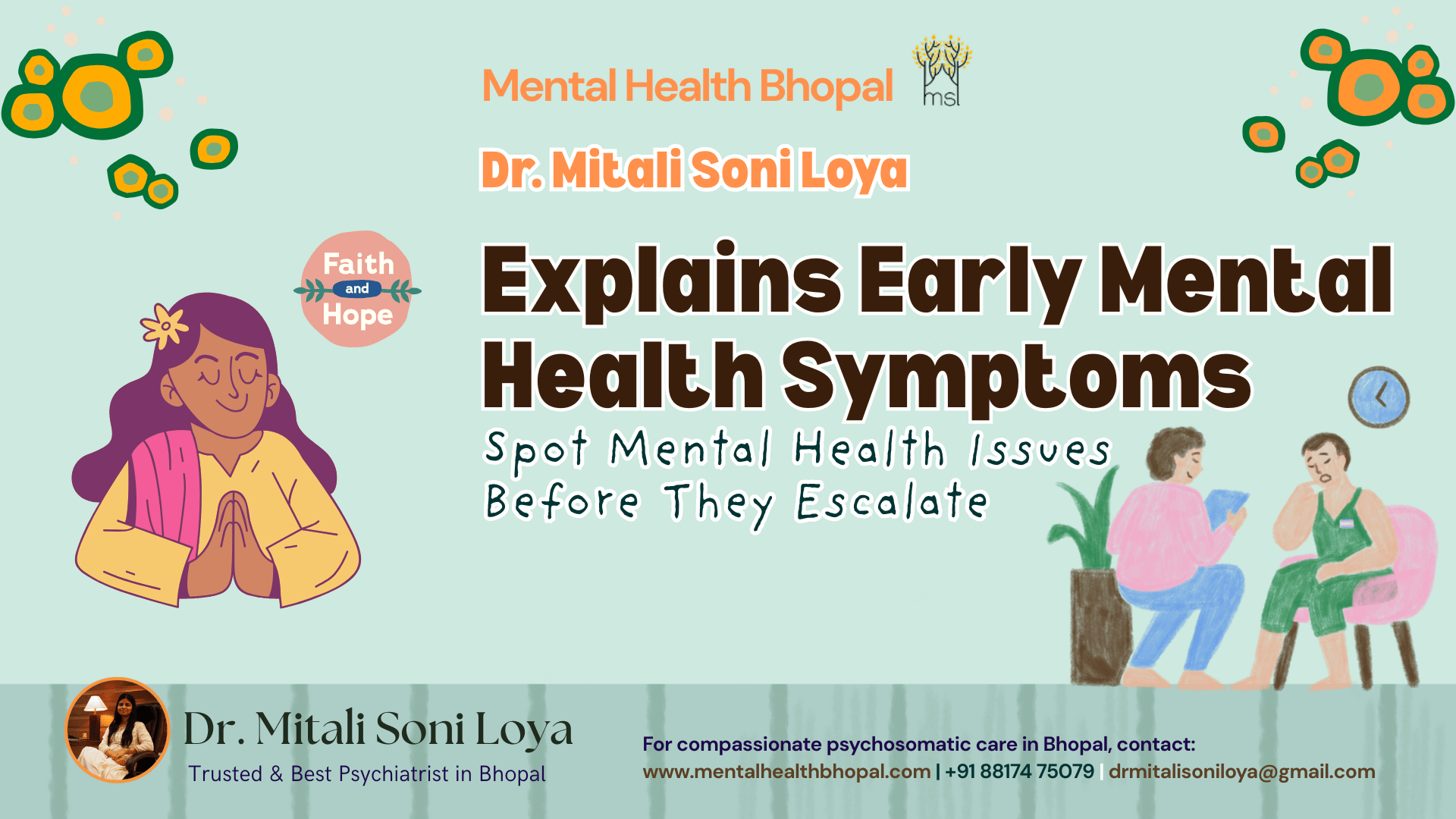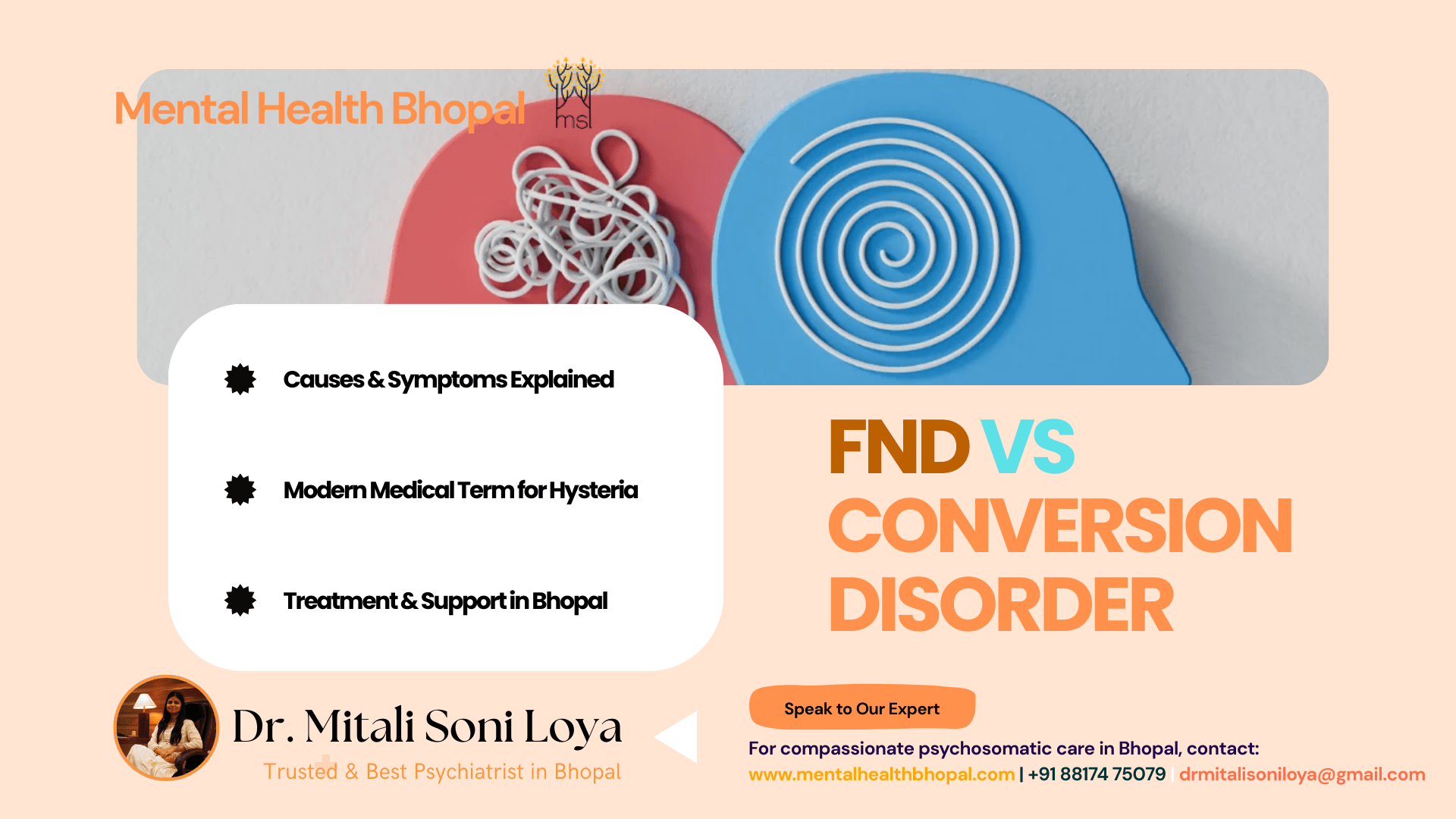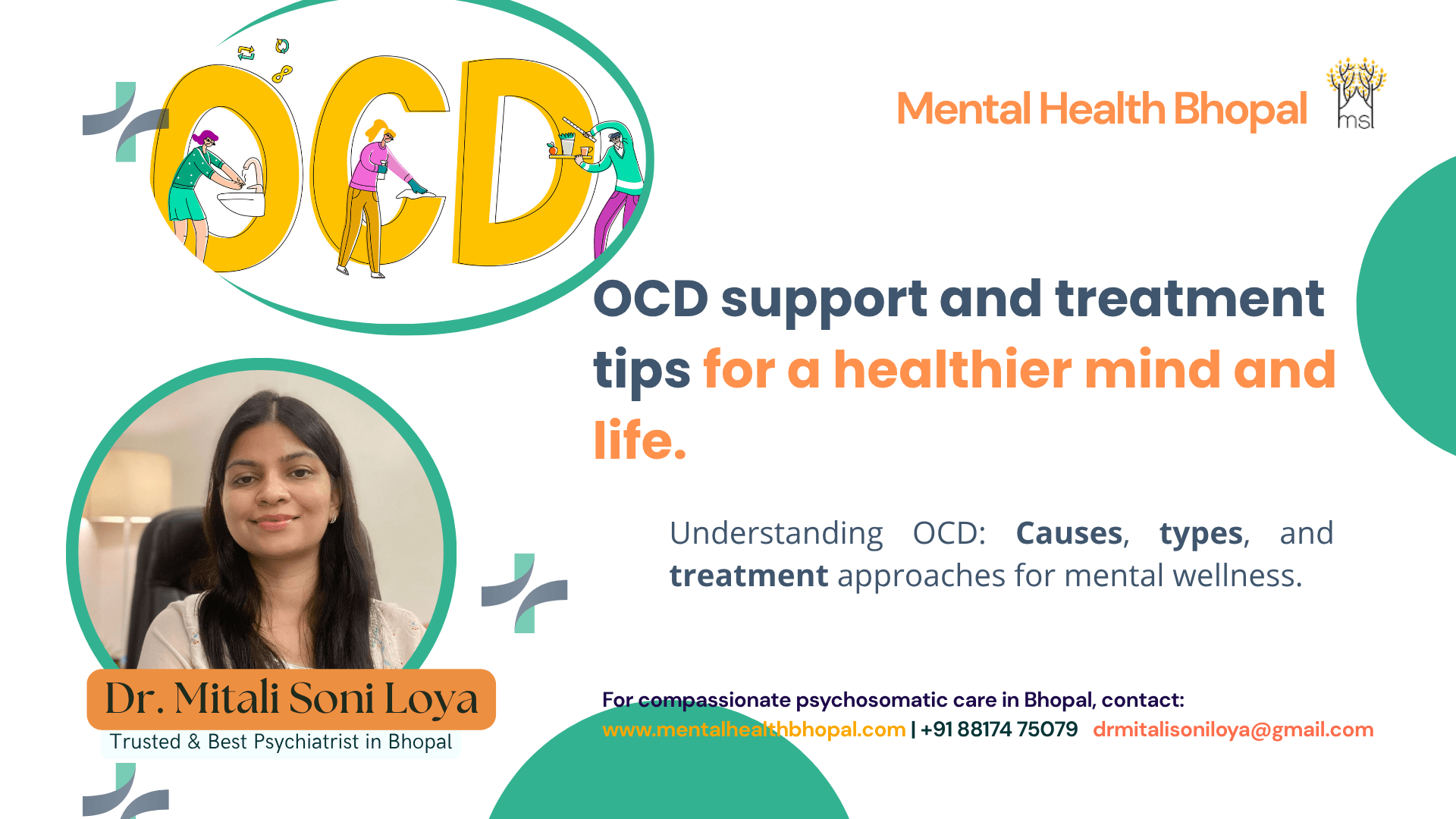Introduction
Some children struggle more than others to follow rules, manage their emotions, or get along with peers. When these behaviors become frequent, disruptive, or emotionally distressing—for the child or the family—they may indicate a deeper issue that needs attention.
Behavioral disorders in children are clinical conditions, not personality flaws or parenting failures. Unaddressed, they can impact academic progress, social development, and family harmony. The good news is that with early intervention and the right guidance, most children can learn better ways to manage their behavior and emotions.
In this blog, we’ll explore the most common types of behavioral disorders, what causes them, and how you can support your child toward a brighter future—with the expert care of Dr. Mitali Soni Loya in Bhopal.
What are behavioral disorders in children?
Behavioral disorders are mental health conditions where a child repeatedly displays defiant, disruptive, aggressive, or socially inappropriate behavior that goes beyond age-appropriate mischief. These behaviors affect a child's ability to function well at school, at home, and in social settings.
Children with behavioral disorders are often labeled as “difficult” or “undisciplined,” but the truth is they need structure, support, and specialized intervention to thrive.
Common types of behavioral disorders
Understanding the type of behavioral challenge your child faces is the first step in providing the right care. Each disorder has a unique symptom pattern but often overlaps in daily life. Here's a breakdown of the most common types:
Attention-deficit/hyperactivity disorder (ADHD)
A neurodevelopmental disorder marked by persistent inattention, hyperactivity, and impulsivity. Children may struggle with staying focused, following instructions, or controlling urges.
- Difficulty sustaining attention
- Hyperactivity and restlessness
- Impulsive actions (blurting out, interrupting)
- Poor academic performance despite intelligence
- Difficulty following instructions
Oppositional defiant disorder (ODD)
A pattern of angry, argumentative, and defiant behavior toward authority figures. This goes beyond normal testing of limits and becomes a frequent, disruptive issue.
- Frequent temper tantrums
- Argumentative with adults or authority figures
- Refuses to follow rules
- Easily annoyed and quick to blame others
- Intentionally annoys people
Conduct disorder (CD)
A more severe condition often involving violation of rules, aggression, and disregard for others. Early intervention is critical for preventing long-term social and legal problems.
- Aggressive behavior toward people or animals
- Destruction of property or theft
- Lying and deceitful behavior
- Violation of rules (truancy, running away)
- Lack of remorse or empathy in severe cases
Disruptive mood dysregulation disorder (DMDD)
This disorder is characterized by chronic irritability and frequent emotional outbursts. It’s often confused with ADHD or bipolar disorder but is distinct in how it affects emotional control.
- Severe temper outbursts (verbal or physical)
- Mood swings and irritability throughout the day
- Trouble functioning at school or in social settings
- Symptoms must begin before age 10
Signs your child may need evaluation!
While some behavioral issues are part of normal development, certain signs suggest the need for professional attention. Keep an eye on consistent patterns that affect your child’s functioning across multiple areas.
- Frequent anger, aggression, or defiance
- Inability to follow age-appropriate rules
- Trouble staying focused or completing tasks
- Withdrawn or disruptive behavior at school
- Intense mood swings or emotional outbursts
- Difficulty making or keeping friends
- Risky or impulsive actions beyond typical age behavior
Causes and contributing factors
Behavioral disorders don’t arise in isolation. They’re typically influenced by a mix of biological, environmental, and emotional factors. Identifying the root causes can guide effective treatment and parenting strategies.
- Genetics: A family history of ADHD, mood disorders, or behavioral issues increases the risk
- Brain development: Neurochemical or structural differences can affect emotional regulation
- Prenatal and birth complications: Low birth weight, exposure to drugs, or delivery trauma
- Home environment: Inconsistent discipline, trauma, or lack of emotional support
- Traumatic experiences: Abuse, neglect, or loss of a caregiver
- Peer pressure or bullying
- Learning disabilities that cause frustration and acting out
How are behavioral disorders diagnosed?
Diagnosis requires a multi-layered approach. Mental health professionals gather input from family, educators, and the child to get a full picture of the issue across different settings.
- Clinical interviews with parents and the child
- Standardized behavior checklists and questionnaires
- Observing the child in multiple settings (home, school)
- Collaboration with teachers or pediatricians
- Ruling out other issues like autism, anxiety, or sensory disorders
Treatment options: How can your child improve?
Effective treatment helps children learn how to control impulses, build emotional awareness, and make better decisions. These approaches are customized based on the child’s age, symptoms, and environment.
Behavioral therapy and parent training
Teaches caregivers to use consistent, positive discipline and behavior reinforcement.
- Positive reinforcement for good behavior
- Structured routines and clear boundaries
- Teaching conflict resolution and emotional control
- Parent-child interaction therapy (PCIT) for rebuilding trust and discipline
Cognitive behavioral therapy (CBT)
Helps children and adolescents recognize thought patterns and manage frustration, anxiety, and emotional outbursts.
- Restructures negative thought cycles
- Teaches problem-solving skills
- Reduces emotional reactivity
Medication
For some disorders like ADHD or mood dysregulation, medication may support behavior control when used carefully.
- Stimulants for ADHD (e.g., methylphenidate)
- Mood stabilizers or antipsychotics for extreme symptoms
- Prescribed only after evaluation and with close monitoring
School-based support
Behavioral support plans can be integrated into a child’s school environment to promote consistency and reduce academic stress.
- Individualized Education Plans (IEPs)
- Classroom accommodations and support
- Coordination with teachers and counselors
Family counseling
Behavioral issues affect the entire family system. Counseling helps improve communication, reduce blame, and build a strong foundation for progress.
Why early support matters?
Early detection and support prevent behavioral issues from evolving into deeper emotional or social problems. Children are most responsive to behavioral tools and therapies when introduced at an early stage.
- Prevents academic underachievement
- Builds better emotional regulation
- Reduces the risk of future mental health complications
- Creates a supportive home and school environment
Why is Dr. Mitali Soni Loya is the best expert for child behavioral disorders in Bhopal?
Dr. Mitali Soni Loya offers a unique blend of psychiatric expertise and child-focused compassion. Known for her family-centered approach and deep understanding of behavioral patterns, she’s helped hundreds of children in Bhopal regain focus, confidence, and emotional stability.
- Extensive experience treating ADHD, ODD, CD, and mood disorders in children
- Comprehensive diagnostic assessments for clarity and accurate intervention
- Customized therapy plans with ongoing parental guidance
- Coordination with schools and teachers for consistent behavioral management
- A calm, child-friendly clinic where kids feel safe and respected
- Strong community trust backed by more than 10 years of clinical success
When your child’s behavior becomes difficult to manage, Dr. Mitali’s expert guidance helps turn confusion into clarity—and frustration into progress.
Conclusion:
Childhood behavioral issues aren’t a reflection of bad parenting or poor character—they’re a signal that a child needs support, guidance, and understanding. With timely help, these challenges can be turned into opportunities for emotional growth and healthier relationships.
If you’ve been worried, frustrated, or simply unsure of what’s going on with your child, you’re not alone—and you don’t have to wait any longer to get answers.
Get expert help for behavioral disorders in children today
Call Dr. Mitali Soni Loya’s clinic in Bhopal to book a consultation and take the first step toward lasting improvement.
Clinic address
10 Ramanand Nagar, Near Lalghati Square, Bhopal, M.P. – 462023
Phone: +91 88174 75079
Email: drmitalisoniloya@gmail.com
Website: www.mentalhealthbhopal.com

 Mitali Soni Loya November 28, 2025
Mitali Soni Loya November 28, 2025
